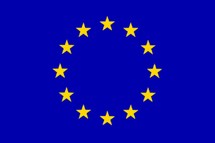
The cost to industry is estimated at some 44 billion euros per year between 2013 and 2020, with a tonne (1.1 US tons) of C02 costing 30 euros.
Business leaders have denounced the policy as a "tax", threatening to take their investments elsewhere and move their more polluting activities out of Europe.
Faced with the threat of job losses, governments are feeling the pressure.
"As the economic situation becomes more challenging, it's normal that government becomes more defensive on climate change as the required efforts will lead to additional costs in the short term," a senior Commission official told AFP on the condition of anonymity.
A number of European politicians are now speaking openly about diluting, or even abandoning the project.
"This plan is garbage. It's politically correct, but it won't happen," former Italian prime minister Giuliano Amato said at the end of August.
Renato Brunetta, Italy's minister for innovation, has been equally blunt.
"If it happens, it would kill the economic upturn. No one needs to kill themselves," said Brunetta, a trained economist.
One negotiator involved in the talks between the Commission and member states, said: "We're hearing these arguments more and more, notably from countries such as Italy and Germany, where industry is increasingly worried."
Brussels was taking the threat very seriously, the negotiator added.
The EU's Environment Commissioner Stavros Dimas has nevertheless also publicly called on politicians and businesses not to oppose the measures.
And European Commission President Jose Manuel Barroso said: "I'm counting on Mr. Sarkozy's authority that the package will be adopted without being watered down before the end of the year."
France has made this plan one of its priorities during its EU presidency. But Sarkozy's own difficulties finding agreement at home on how to finance his "environmental revolution" suggest the size of the task facing the EU.
French negotiators still have a few weeks and two ministerial meetings to agree on a common position to be presented to the European parliament in October, with a view to reaching an agreement by the end of the year.
"There has been no fundamental breakthrough as yet, but the final phase of negotiations has begun and provided the economic situation does not worsen, we hope to find an agreement," one negotiator said.
The plan has two goals, the same source said: "It's about putting in place the tools to maintain European industry's competitiveness and helping member states achieve their national objectives.
But the negotiator cautioned: "Some decisions are very political and will involve trade-offs."
Business leaders have denounced the policy as a "tax", threatening to take their investments elsewhere and move their more polluting activities out of Europe.
Faced with the threat of job losses, governments are feeling the pressure.
"As the economic situation becomes more challenging, it's normal that government becomes more defensive on climate change as the required efforts will lead to additional costs in the short term," a senior Commission official told AFP on the condition of anonymity.
A number of European politicians are now speaking openly about diluting, or even abandoning the project.
"This plan is garbage. It's politically correct, but it won't happen," former Italian prime minister Giuliano Amato said at the end of August.
Renato Brunetta, Italy's minister for innovation, has been equally blunt.
"If it happens, it would kill the economic upturn. No one needs to kill themselves," said Brunetta, a trained economist.
One negotiator involved in the talks between the Commission and member states, said: "We're hearing these arguments more and more, notably from countries such as Italy and Germany, where industry is increasingly worried."
Brussels was taking the threat very seriously, the negotiator added.
The EU's Environment Commissioner Stavros Dimas has nevertheless also publicly called on politicians and businesses not to oppose the measures.
And European Commission President Jose Manuel Barroso said: "I'm counting on Mr. Sarkozy's authority that the package will be adopted without being watered down before the end of the year."
France has made this plan one of its priorities during its EU presidency. But Sarkozy's own difficulties finding agreement at home on how to finance his "environmental revolution" suggest the size of the task facing the EU.
French negotiators still have a few weeks and two ministerial meetings to agree on a common position to be presented to the European parliament in October, with a view to reaching an agreement by the end of the year.
"There has been no fundamental breakthrough as yet, but the final phase of negotiations has begun and provided the economic situation does not worsen, we hope to find an agreement," one negotiator said.
The plan has two goals, the same source said: "It's about putting in place the tools to maintain European industry's competitiveness and helping member states achieve their national objectives.
But the negotiator cautioned: "Some decisions are very political and will involve trade-offs."









 Home
Home Politics
Politics









